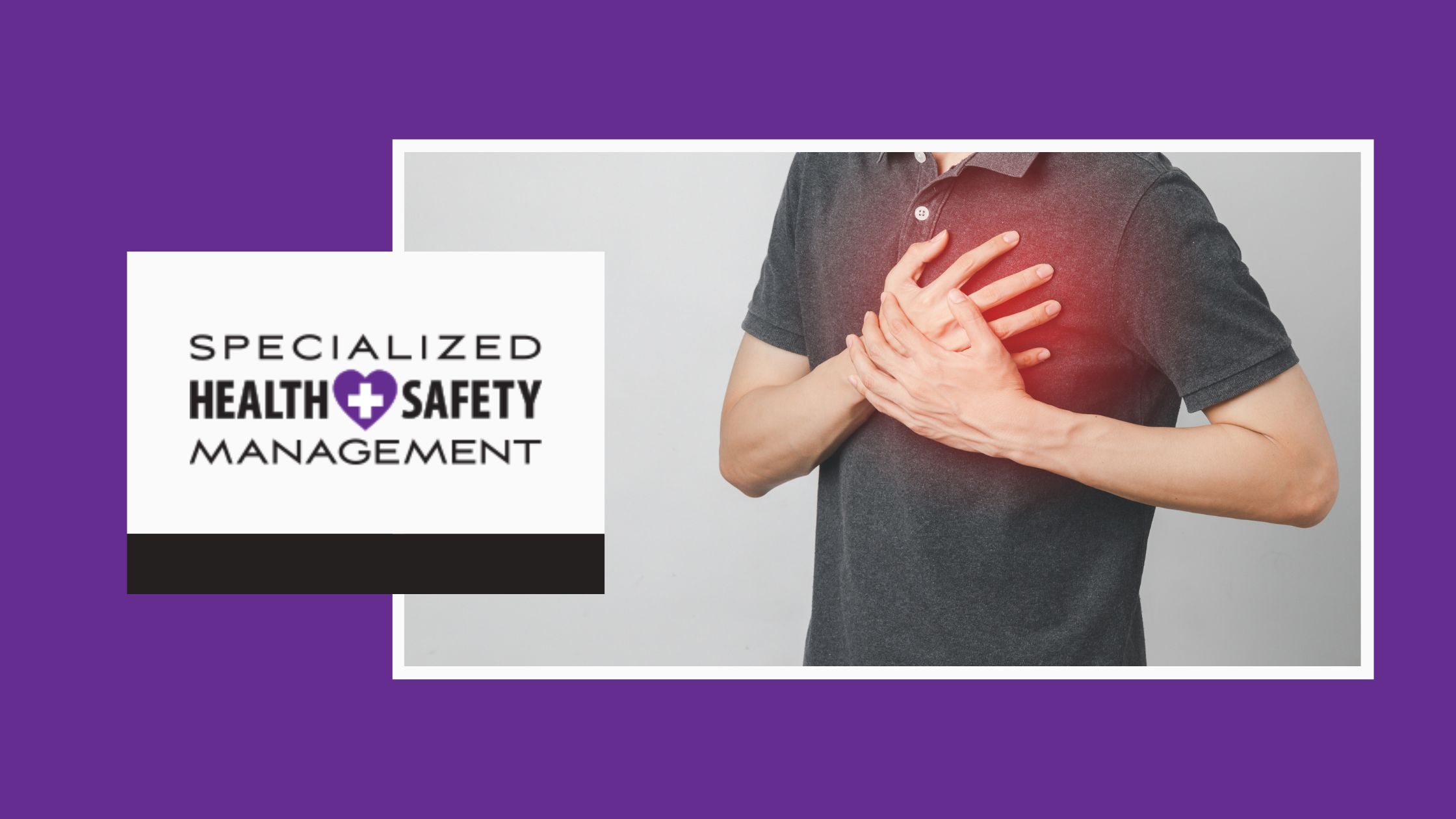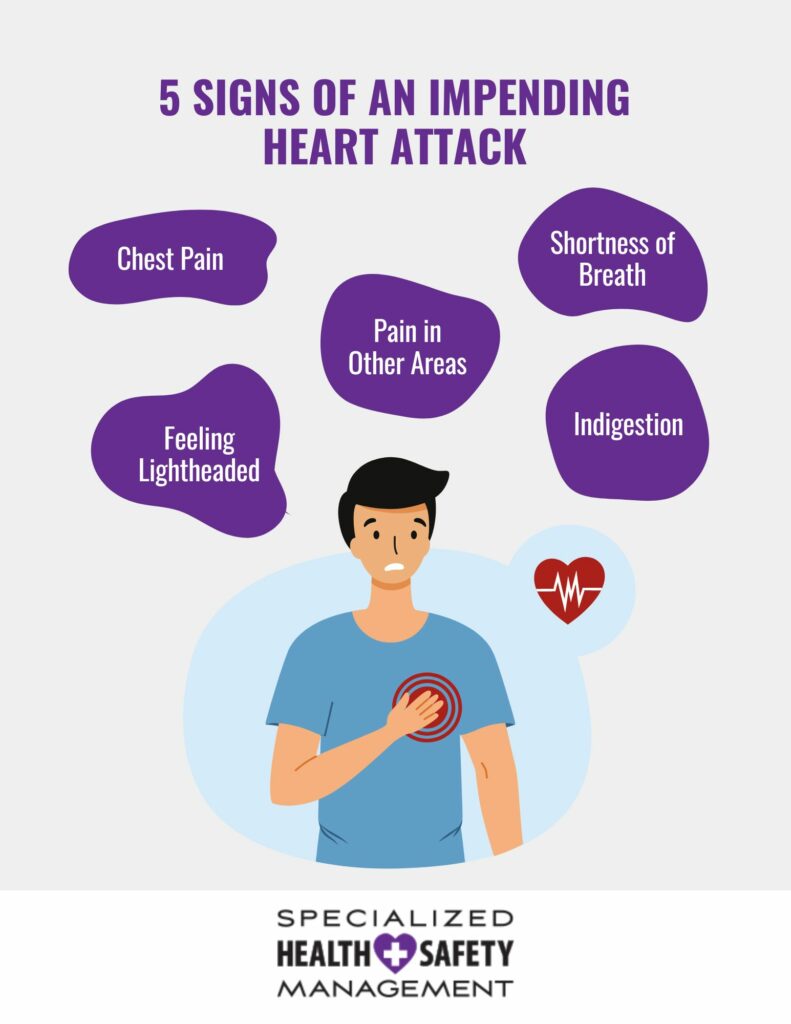
Heart disease is a serious issue in the United States. In fact, it’s the leading cause of death in adults. The CDC reports that a heart attack occurs every 40 seconds in the U.S. They also state that approximately 1 in 5 heart attacks are silent, meaning that the individual experiences a heart attack but doesn’t realize it.
One of the best ways to promote a positive outcome after a heart attack is to recognize that it’s happening and seek treatment immediately. That’s why it’s essential to know warning signs of an impending heart attack. Read on to find out the most common early signs of a heart attack so you can be prepared.

What is a Heart Attack?
To recognize the signs of an impending heart attack, it’s important to define what a heart attack is and what it does to the heart. Heart attacks are also known as myocardial infarctions. They occur when there is a disruption in the flow of oxygenated blood to the heart.
Without proper blood flow, the heart muscle will begin to die. The longer this disruption in blood flow continues, the more damage will occur to the heart. Heart attacks are emergencies which are life-threatening and should be treated right away.
Early Signs of a Heart Attack
It’s important to seek out treatment for heart attacks as soon as possible to prevent extensive damage from occurring. The best way to achieve this is to know common warning signs of an impending heart attack and how to recognize them. Here are some early signs of a heart attack to keep in mind:
Chest Pain
One of the most common signs of a heart attack is chest pain. This pain can show up in several different ways. It can feel like pressure, squeezing, tightness, or aching. Often, there will be an uncomfortable feeling that begins in the center or the left half of the chest that sticks around for several minutes or longer. Sometimes, pain disappears and then reoccurs.
Pain in Other Areas
Chest pain isn’t the only type of pain that can occur during a heart attack. Other areas of the body where someone might feel pain include the neck, back, jaw, shoulders, teeth, or upper abdomen.
Shortness of Breath
Shortness of breath is another key sign of an impending heart attack. Often, shortness of breath co-occurs alongside discomfort in the chest. However, this symptom can be present before any chest pain or uncomfortable sensations begins.
Feeling Lightheaded
Lightheadedness or dizziness can be another symptom of a heart attack. Individuals may also feel sudden weakness, experience a cold sweat, or feel nauseous.
Indigestion
Aside from nausea, other digestive symptoms are linked to an impending heart attack. These symptoms include indigestion and discomfort that feels like heartburn.
How Long Can Signs of a Heart Attack Last?
Now that you know the early signs of a heart attack, you might be wondering, “how long can signs of a heart attack last for?”. If you feel a symptom like chest pain, indigestion, or dizziness, how do you know if it’s related to a heart attack? This can be a difficult question to answer.
In some cases, a heart attack occurs suddenly without warning. In other situations, symptoms associated with the heart attack show up for weeks, days, or hours before the attack occurs.
If you do have these signs of an impending heart attack, it’s better to be safe and seek an evaluation from a medical professional instead of waiting. Immediate treatment is the best way to prevent irreversible damage to your heart.
Learn Life-Saving Skills with Specialized Health and Safety
Brushing up on early signs of a heart attack isn’t the only step you can take to keep yourself and others safe. Learning life-saving skills like CPR can also make a big difference in emergency situations. If you see someone having a heart attack who is unconscious or doesn’t have a pulse, you can start CPR until emergency services arrive.
Specialized Health and Safety offers a variety of first aid and CPR courses. When you have these life-saving skills under your belt, you can take action when you’re faced with a life-threatening situation. Learn more today.

